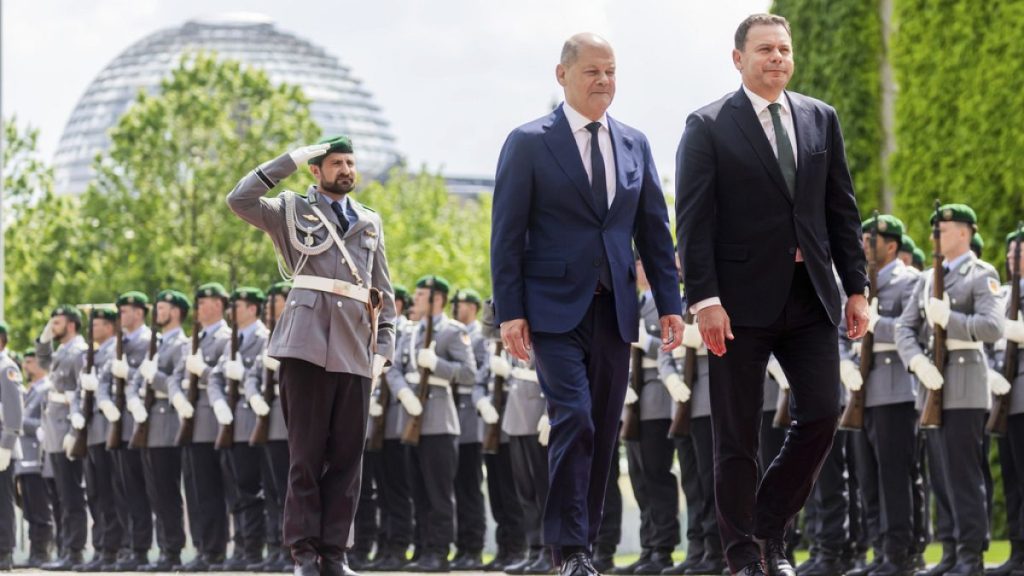German Chancellor Olaf Scholz began his European election campaign by cautioning against the next president of the European Commission seeking support from far-right parties, which are projected to make significant gains in the upcoming vote. Left-leaning parties in Europe are urging mainstream conservatives and liberals to reject forming alliances with far-right parties following the European elections. A major shift to the right could present challenges for the next EU Commission president, who will need to secure approval from a majority in the new pan-European parliament. Leading the 27-nation bloc effectively might prove difficult if relying solely on support from traditional political groupings.
During talks with his Portuguese counterpart Luis Montenegro in Berlin, Scholz emphasized the importance of the next European Commission not relying on the support of right-wing extremists to establish a parliamentary majority. He expressed concern over recent political statements and emphasized the need for the presidency of the European Commission to be built upon the support of traditional parties. Scholz stressed that any other approach would be a mistake for the future of Europe, indicating a strong stance against alliances with far-right parties in the EU political landscape.
While Scholz did not specify the particular statements he was referring to, his statements are likely to be interpreted as a warning to the current EU Commission President, Ursula von der Leyen. As a member of Germany’s main opposition Christian Democrats and a potential candidate for a second term, von der Leyen has not ruled out the possibility of working with certain members of far-right parties. Scholz’s clear stance against such alliances signals a significant divide within European politics regarding the role of far-right parties in shaping the future of the European Union.
The upcoming European elections are expected to be a critical juncture in determining the future direction of the European Commission and the broader EU political landscape. With far-right parties projected to make gains in the vote, mainstream conservatives and liberals are facing pressure to distance themselves from forming alliances with these groups. Scholz’s warning highlights the potential consequences of aligning with far-right parties and the need for the next EU Commission president to build a strong foundation on support from traditional political parties.
The issue of forming alliances with far-right parties in the European political context has become a contentious topic, with differing views on the implications of such partnerships for the future of Europe. Scholz’s stance against relying on right-wing extremists for establishing a parliamentary majority reflects a broader debate within the EU about the values and principles that should guide the functioning of the European Commission. As Europe grapples with the rise of populism and the political shifts within member states, the outcome of the European elections and the formation of the next EU Commission will play a critical role in shaping the future trajectory of the European Union.
In conclusion, German Chancellor Olaf Scholz’s warning against seeking support from far-right parties signals the importance of upholding the values and principles of traditional political groupings within the European Union. As the EU prepares for the upcoming elections and the selection of the next European Commission president, the debate over forming alliances with far-right parties has become a central issue. With the rise of populism and political shifts across member states, the decisions made in the coming months will have far-reaching implications for the future direction of the European Union. The stance taken by Scholz reflects a broader conversation within Europe about the role of traditional parties in shaping the future of the EU and underscores the importance of upholding democratic values in the face of political challenges.


